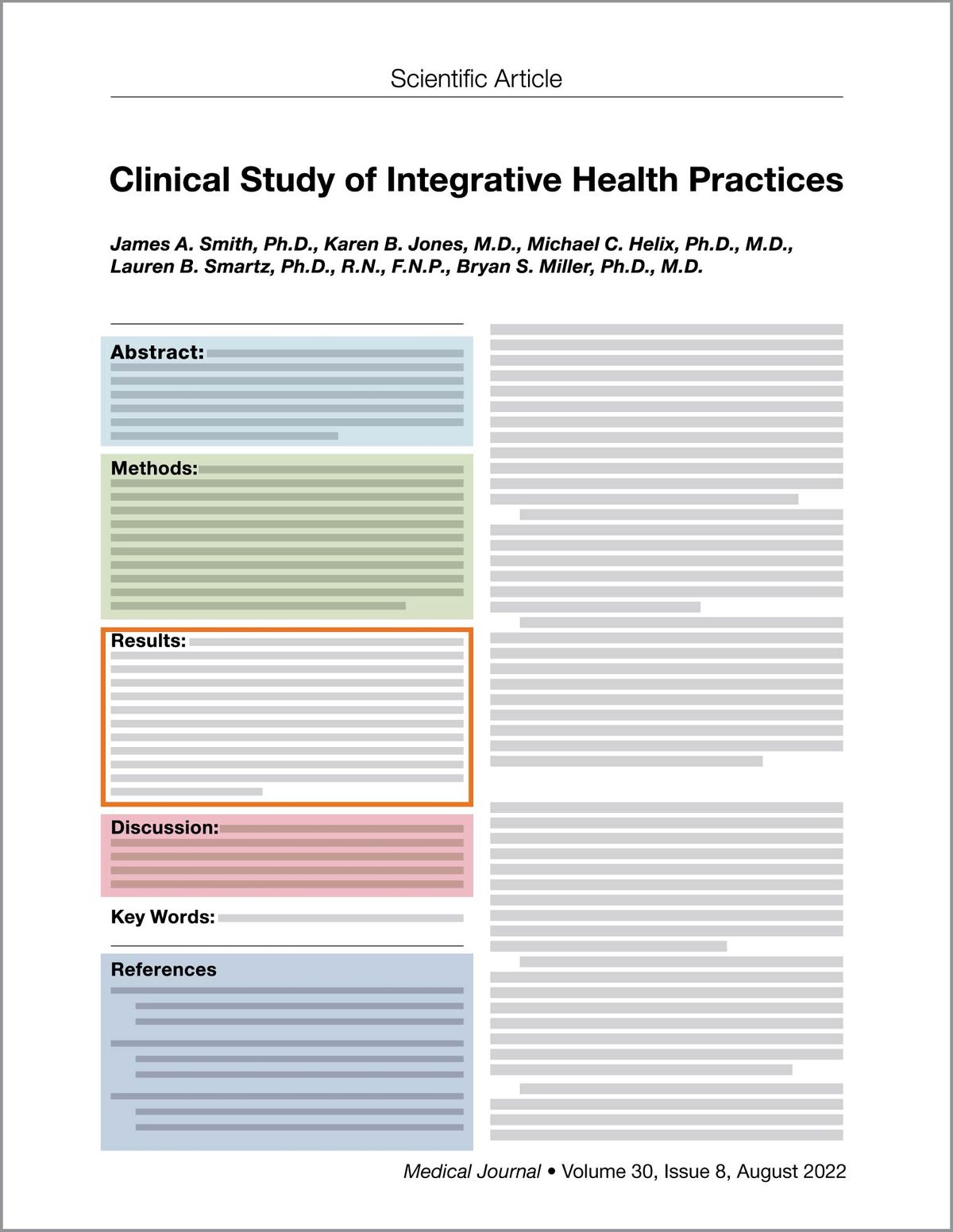Know the Science: How To Make Sense of a Scientific Journal Article

Click on one of the highlighted areas to learn more
Results
What the study showed.
The data, summaries, and analyses of the study are presented in this section. Tables, graphs, and charts that show the results are often included.
To better understand the results, you can ask these questions:
- How do these results compare with previous studies?
- A single study rarely provides a final, definitive answer.
- Repeating a study using the same methods with different volunteers and investigators helps us know that the results are reliable and valid.
- What do “statistically significant” and “clinically significant” mean?
- “Statistically significant” means the differences observed between the groups are real and not likely due to chance.
- Clinically significant is a measure of the size of the effects observed in the study, which shows the impact of the treatment.
- A study can find statistically significant differences between two treatment groups, but the differences may be so small that they are not clinically significant in terms of usefulness for patients.
- Are there potential conflicts of interest?
- Did the study sponsor or the investigators have any financial or reputational "stake" in the outcome?
- Most medical journal articles include information about relevant financial relationships.